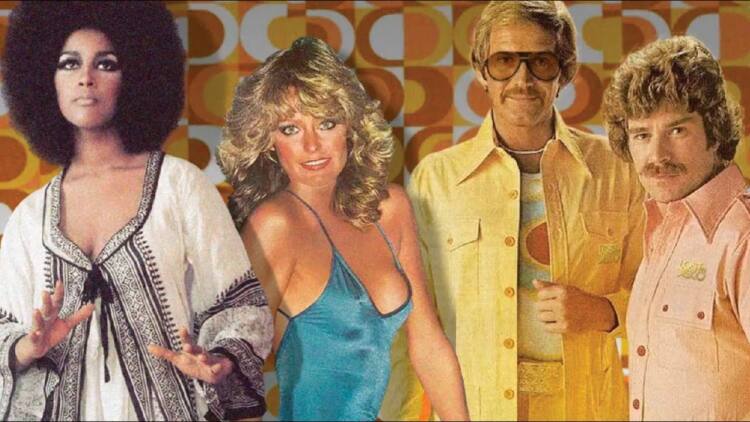
The 1970s don’t get the billing that they deserve. But that’s the decade that really kicked off the world that is unfolding before us, even now.
The 1970s don’t get the credit they deserve. Sandwiched between the flower-power ’60s and the neon-soaked ’80s, the decade—especially its early years—quietly rewrote the rules of culture, technology, and society. It was a time of gritty realism, bold experimentation, and seismic shifts that still echo today, from the clothes we wear to the screens we stare at. Against a backdrop of global upheaval and domestic disillusionment, the ’70s didn’t just react to the world—they redefined it. Here’s why the early 1970s, in particular, set the tone for the next 50 years.
The Backdrop: A World on Edge
Picture this: It’s 1970. The Vietnam War drags on, its body count beamed into living rooms via nightly news, eroding trust in governments everywhere. In the U.S., Richard Nixon’s presidency is a tightrope walk—by ’72, Watergate will blow it apart, cementing a cynicism that never fully faded. The ’73 oil crisis, sparked by OPEC’s embargo, sends gas prices soaring and exposes the fragility of Western economies, while the Cold War keeps the planet in a nuclear staring contest. Elsewhere, newly independent nations in Africa and Asia redraw the global map, and the first Earth Day in 1970 plants a seed for environmentalism. This cocktail of unrest and awakening didn’t just unsettle the ’70s—it fertilized the trends that took root.
Cultural Shifts: From Idealism to Edge
The ’60s dreamed big; the ’70s got real. Music traded tie-dye for torn leather as punk exploded—New York’s Ramones formed in ’74, spitting raw energy that still fuels alt scenes today. Disco, meanwhile, spun out of urban clubs like Studio 54 (opened ’77, but born in the decade’s pulse), turning nightlife into a glittering escape that’s never left pop culture. Fashion mirrored the split: bell-bottoms and platforms screamed individuality, a far cry from the ’60s’ communal vibe. These weren’t just fads—they were statements. Walk into a thrift store or scroll Instagram in 2025, and you’ll see ’70s aesthetics reborn, proving their staying power.
The shift wasn’t accidental. Post-Vietnam and Watergate, people craved authenticity—or at least distraction. Hollywood caught the mood with gritty classics like The Godfather (’72), swapping escapism for moral ambiguity. It’s a lens we still use—think of today’s antihero obsession in shows like Breaking Bad. The early ’70s didn’t invent rebellion; they made it permanent.
Tech and Media: The Digital Dawn
While bell-bottoms strutted, quieter revolutions brewed. In ’74, the Altair 8800 hit the scene—a clunky box that birthed personal computing. Hobbyists tinkered, and by decade’s end, Steve Jobs and Bill Gates were on their way to tech godhood. Video games blinked to life too—Atari’s Pong (’72) turned screens interactive, setting up everything from Nintendo to Fortnite. These weren’t toys; they were the foundation of a digital world we now take for granted.
Media evolved too. TV ditched sanitized sitcoms for bite—All in the Family (debuted ’71) tackled race, class, and politics with a smirk, paving the way for today’s boundary-pushing streaming hits. And in ’76, Network skewered the news-as-entertainment beast, a prophecy fulfilled by 24-hour cable and X’s outrage machine. The ’70s didn’t just invent gadgets—they rewired how we connect and consume.
Social Movements: Rights Take Root
If the ’60s planted seeds, the ’70s grew the forest. Feminism hit stride with Title IX in ’72, banning sex discrimination in education, and Roe v. Wade in ’73, igniting debates that rage on. The gay rights movement, sparked by Stonewall in ’69, gained steam—by ’73, the American Psychiatric Association declassified homosexuality as a disorder, a tectonic shift. These weren’t side stories; they rewrote power structures. Today’s battles over equity and identity? They’re ’70s DNA, amplified.
Even environmentalism, often pegged to later decades, took off here. The 1970 Clean Air Act and the EPA’s creation (both ’70) turned green ideas into policy, a legacy we lean on as climate dominates headlines. The early ’70s didn’t just protest—they institutionalized change.
The Legacy
The ’70s weren’t flashy like the ’80s or revolutionary like the ’60s, but they were the pivot. They took the chaos of the prior decade, mixed it with a dose of reality, and built the world we live in—cynical yet creative, digital yet divided. Fifty years later, we’re still dancing to their beat.
References to Explore:
The Seventies: The Great Shift in American Culture, Society, and Politics by Bruce J. Schulman—dives into how the decade bridged eras and left a lasting mark.
Network (1976 film)—a darkly funny warning about media’s future, as relevant now as ever.
Rolling Stone’s “The 1970s: The Decade That Changed Rock” (or similar)—traces how the sound of the ’70s still echoes.
